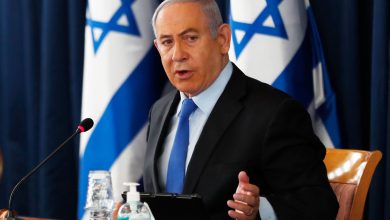Tense calm, sporadic clashes in Idlib as Russia-Turkey ceasefire broadly holds

Issued on: 06/03/2020 – 19:19Modified: 06/03/2020 – 19:19
Deadly clashes erupted in parts of northwest Syria on Friday but a ceasefire deal between Russia and Turkey aimed at ending months of intense conflict was largely holding elsewhere in the country's last rebel-held enclave.
Advertising
Read more
A war monitor and rebel sources said the fighting broke out in the Jabal al-Zawiya region in the south of Idlib province between Syrian government forces and jihadist insurgents of the Turkistan Islamic Party. Fifteen people were killed, the Syrian Observatory said.
Residents and opposition forces said the violence had abated elsewhere.
The clashes, while limited, underline the fragility of Thursday's deal between Russia, which backs President Bashar al-Assad's forces, and Turkey. Ankara supports rebel fighters but has less sway over hardline jihadists who control large parts of Idlib.
The ceasefire aims to contain a conflict that has displaced nearly a million people in three months in Idlib, which borders Turkey. But analysts and residents said they feared it would not hold in part because it did not address the humanitarian crisis nor air protection in any detail.
"The deal is a failure and a joke," said Amar Ahmed, 32, a farmer who has been displaced for nearly two months and lives in a destroyed building. "We want to go back home, to our lands, and for the (Assad) regime to leave our home towns."
Turkish President Tayyip Erdogan had vowed repeatedly in recent weeks to reverse advances by Assad's forces in Idlib. However, Thursday's deal froze the conflict along existing front lines, cementing significant gains by Syrian government forces.
"There may be criticism but our priority was for a ceasefire and we achieved it. Some goals were not reached but that goes for both sides," a senior Turkish official said.
Humanitarian crisis
The recent fighting sparked what the United Nations says may be the worst humanitarian crisis yet in a war that has driven millions from their homes and killed hundreds of thousands.
Turkey, which has the second largest army in the transatlantic NATO alliance, has tried to resist the Syrian government advance and prevent a wave of refugees over its southern border. It already hosts 3.6 million Syrian refugees.
Russia had repeatedly played down any talk of a refugee crisis and accused Turkey of violating international law by pouring troops and equipment into Idlib since early last month. About 60 Turkish troops have been killed in that time.
The ceasefire deal establishes a security corridor stretching 6 km (3.7 miles) to the north and south of Idlib's east-west M4 highway, where joint Russian-Turkish patrols will begin on March 15, effectively advancing Russia's presence further north into the province.
Several previous deals to end the fighting in Idlib have collapsed. The latest one did not detail a "safe zone" or describe how displaced people could return to their homes.
"Any ceasefire arrangement in Idlib, unless it has a no-fly zone dimension, is bound to fail. Deals in the past never de-escalated. They merely froze the crisis until the next escalation," said Galip Dalay, IPC-Mercator fellow at the German Institute for International and Security Affairs.
Tense calm
Residents and fighters in the region said the front linesRead More – Source
[contf]
[contfnew]

france24
[contfnewc]
[contfnewc]




